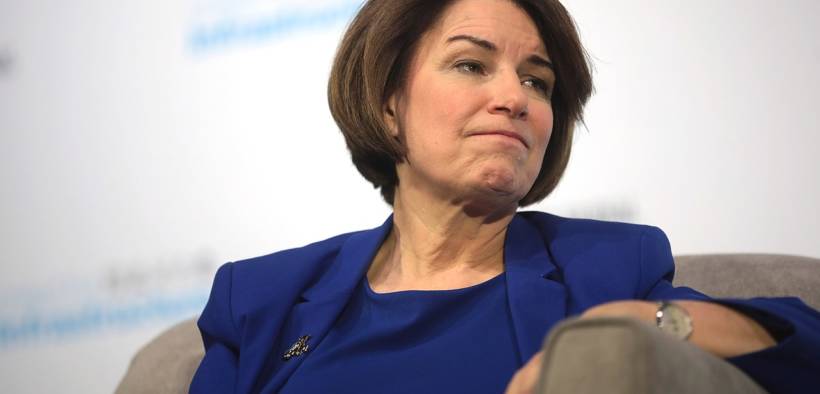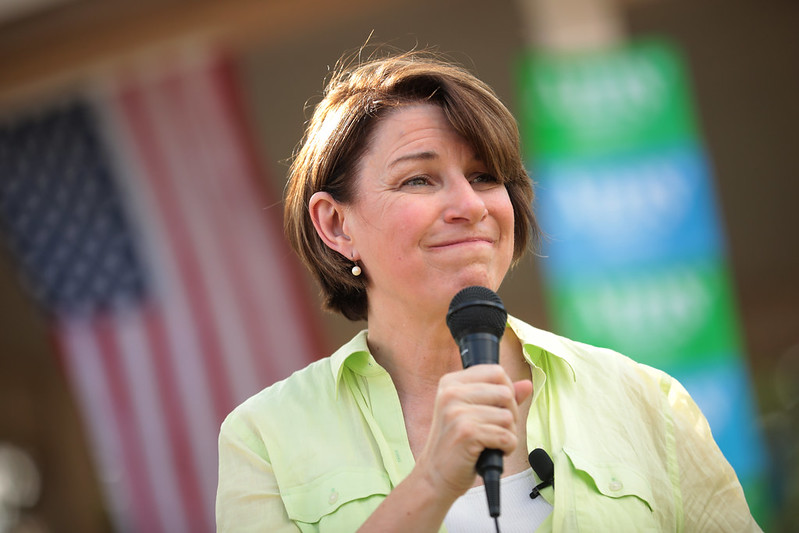The Cold Banality of the Democratic National Convention Lineup


The 2020 Democratic National Convention: Feel the excitement?
Not quite. The four-day celebration of the best the Democratic Party has to offer and John Kasich has its schedule set—and if you’re like me, you’re less than impressed.
Day 1 features Bernie Sanders and Michelle Obama as their top-billed speakers. Other than that, though, the list doesn’t exactly overwhelm. Sens. Amy Klobuchar and Catherine Cortez Masto, fresh off not earning vice presidential nominations, are evidently set to inspire conventioneers with their newfound status. Ditto for Gov. Gretchen Whitmer. Sen. Doug Jones is there because…he has an election to try to win? Gov. Andrew Cuomo, who has seen his star rise despite his state’s dilatory early response to news of positive COVID-19 tests and allegations of corruption will…call Donald Trump names?
In all, the speakers here seem to evoke an air of temporary/contextual relevance because they were once considered candidates for president or vice president or for their handling of the coronavirus. Bernie’s and Michelle Obama’s legacies seem pretty secure, but the others? Aside from Reps. Jim Clyburn and Gwen Moore, their records and future party standing are questionable. Clyburn’s and Moore’s inclusion itself speaks to the Democratic Party’s preoccupation with identity politics but only to the extent it reinforces “old guard” politics.
Day 2 features Alexandria Ocasio-Cortez and is headlined by Dr. Jill Biden. Lisa Blunt Rochester is…from Delaware (not to downplay her significance as both the first woman and first African-American to represent her state in Congress, but she’s definitely not a household name)? Sally Yates is presumably there because of her defiance to the Bad Orange Man?
After that, it’s a trio of white dudes who definitely represent establishment Democrats. Chuck Schumer and John Kerry, one might imagine, will be on hand to deliver plenty of bland generalities. And then there’s Bill Clinton. If his association with Jeffrey Epstein and the “Lolita Express” aren’t problematic enough, there’s a good chance he’ll say something cringe-worthy just the same.
Day 3 has, um, Billie Eilish for the young folks? Seriously, though, she’s slated to perform. Newly-minted vice presidential nominee Kamala Harris and Barack Obama are the top political stars of the evening. As a whole, this day belongs to the ladies—and that’s pretty cool. Unfortunately, two of those women are Nancy Pelosi and Hillary Clinton, of whom to say they are removed from the concerns of everyday Americans would be an understatement.
Other than that? Meh. Gabby Giffords will be bringing her party loyalty and her obvious standing to talk about gun control to the table. Elizabeth Warren, the picture of party unity that she is, also will be delivering remarks. Michelle Lujan Grisham has…grit? And I don’t know what business Gov. Tony Evers of Wisconsin has speaking at this convention. This man made a late bid to postpone his state’s primaries, was rebuffed by the Wisconsin Supreme Court, and didn’t intervene in the same way Republican governor Mike DeWine did in Ohio to push back elections due to concerns about coronavirus infections at polling places. Even if spikes following the Wisconsin primaries can’t be definitively linked to in-person voting, failing to act to reduce or eliminate this risk is to be decried, not celebrated with a speaking slot.
The final day of the convention belongs, of course, to Joseph Robinette Biden. Andrew Yang is speaking—or he isn’t—or maybe he is again? We’ve got not one, but two Tammies—Tammy Baldwin (surprisingly progressive for Biden) and Tammy Duckworth.
Aside from these speakers, I could take or leave the rest of the program. With no disrespect meant to The Chicks (formerly known as the Dixie Chicks), OK, were party supporters clamoring for you to be here? Chris Coons once more fulfills the obligatory Delawarean portion of the program and that’s about it. Sen. Cory Booker, Gov. Gavin Newsom of California, and Atlanta Mayor Keisha Lance Bottoms are present as not-too-old, not-too-young faces of the Democratic Party. Also, Pete Buttigieg is slated to gnaw on some cheese. Just saying—the guy looks like a rat.
This is what awaits viewers for the virtual Democratic National Convention, for the most part. As noted, John Kasich, who is still a member of the opposition party, should be speaking, though I didn’t see him listed on the official convention website schedule. All in all, with the Democratic Party speakers thus enumerated, there’s not a lot to excite prospective younger voters. A number of these political figures are either older, fairly obscure outside of political circles, or both, when not additionally owning problematic legacies (hello, Amy Klobuchar, Bill Clinton).
More critically, the attention to policy specifics, as it has been with Joe Biden the 2020 presidential candidate, will likely be sparing. In a political environment inextricably linked to the ongoing pandemic and impacted by the moment’s (overdue) push for economic, environmental, racial, and social justice, Americans hungry for substantive change want to know what the Democratic Party will do for them should the Democrats take the White House. The standard platitudes aren’t cutting it.
I refer to the “cold banality” of the Democratic National Convention in the title of this piece because, in addition to this event being a boring four-day celebration of Democrats not being Donald Trump, it largely freezes out progressives.
Bernie Sanders has been afforded a prominent role in the proceedings, though he has largely (and dubiously) tried to paint Joe Biden and his campaign as embracing a progressive platform. Tammy Baldwin and Elizabeth Warren will be also be delivering remarks, though on the latter count, it’s tough to know what exactly Warren’s commitment is to the progressive cause in the United States. She notably backed off her prior support for Medicare for All and took super PAC money during her own presidential campaign, trying to justify it by claiming everyone else was doing so and that she needed to follow suit. That doesn’t make you sound very principled, Ms. Warren.
And what about Alexandria Ocasio-Cortez? This is where it gets juicy, as they say. AOC’s entire involvement with the convention is reportedly limited to a one-minute prerecorded message. That’s it. Sixty seconds for one of the party’s rising stars and biggest fundraisers. If this sounds stupidly self-defeating, one has only to remember this is the Democrats we’re talking about here, masters of snatching defeat from the jaws of victory.
This goes beyond mere strategic miscues, however. The DNC knows what it’s doing, and Ocasio-Cortez’s effective snub is another potshot at progressives seeking authentic leadership from the Democratic Party. Furthermore, with 2024 chatter already underway, the party establishment is probably desperate to blunt any momentum she might have for a presidential bid. They don’t want her pulling a Barack Obama and using her speech at the convention as a springboard to a viable candidacy. If that were to happen, they might—gasp!—actually have to commit to policies that help everyday Americans.
The old guard of the Democratic Party knows its days are numbered. Progressives haven’t won a ton of primary challenges, but little by little, they’re scoring impressive victories and elevating recognition of outspoken leftists to the national consciousness. Policies like Medicare for All and the Green New Deal are resonating with the general public. Heck, a significant percentage of Democratic voters say they have a positive view of socialism. Dreaded socialism. When people are finally beginning to sour on almighty capitalism, you know a real sea change is in our midst.
It is because of this percolating progressive energy within Democratic ranks that, while it’s still frustrating that the progressive movement isn’t further along by now, leftists in the U.S. and abroad can take heart knowing that there is strength in grassroots organizing and people-powered solutions to society’s ills. The Democratic National Convention, in all its pomp and circumstance, already felt somewhat irrelevant given the fragmentation of the global media landscape in the social media age. With a global pandemic and economic, political, and social unrest altering the political calculus in 2020 even more, it seems especially so now.







